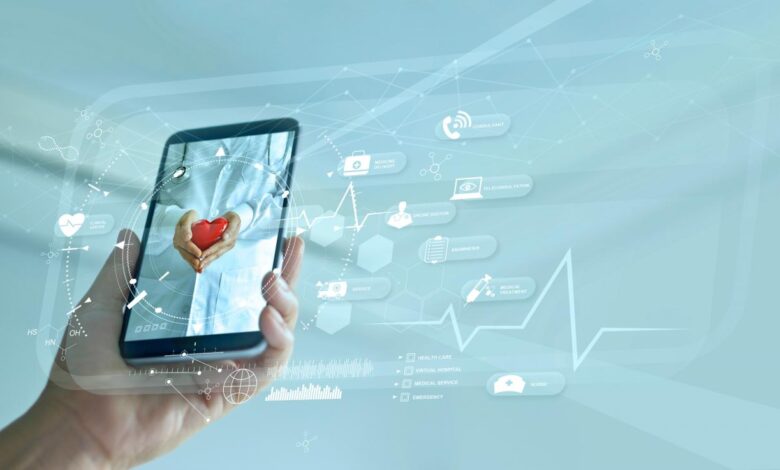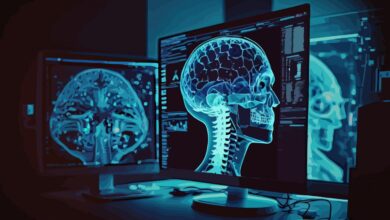The Rise Of Diy Healthcare Ethical And Legal Dilemmas

The Rise of DIY Healthcare: Ethical and Legal Dilemmas sets the stage for an enthralling narrative, showcasing how individuals are taking healthcare into their own hands. In recent years, the convergence of technology and personal empowerment has sparked a significant shift towards do-it-yourself healthcare practices. From home remedies to telemedicine apps, people are increasingly seeking alternatives to traditional healthcare systems, often driven by the desire for autonomy and cost-effectiveness.
However, this movement raises pressing ethical and legal questions that cannot be overlooked. As individuals navigate the complexities of DIY healthcare, they encounter a landscape filled with both opportunities and risks. Understanding the implications of these practices is crucial in fostering a safe yet innovative approach to personal health management.
The Concept of DIY Healthcare: The Rise Of DIY Healthcare: Ethical And Legal Dilemmas

DIY healthcare refers to the practice where individuals take health management into their own hands, leveraging available resources, technology, and community support. This trend has its roots in traditional healing practices and grassroots movements, with a significant evolution over the years driven by advancements in technology and an increasing desire for autonomy in personal health decisions. The DIY healthcare movement has gained traction as people seek to complement or even substitute conventional medical care with self-directed methods.
The origins of DIY healthcare can be traced back to early human societies where individuals relied on herbal remedies and home-based treatments to address common ailments. As time progressed, particularly in the 20th century, the rise of the internet paved the way for greater access to health information. This accessibility has enabled many to adopt a DIY attitude towards their health, leading to the emergence of various methods that emphasize self-management and personal responsibility.
Examples of Common DIY Healthcare Methods
Today, various DIY healthcare methods are prevalent, showcasing the diversity of approaches individuals take towards their health:
- Homeopathy: This method involves using highly diluted substances aimed at triggering the body’s natural healing processes. Many people create their own homeopathic remedies using readily available ingredients.
- Herbal Medicine: Individuals often turn to common herbs and plants to create tinctures, teas, and salves, leveraging traditional knowledge passed down through generations.
- Telemedicine: With the rise of telehealth platforms, individuals can consult healthcare professionals from the comfort of their homes, allowing for a more personalized healthcare experience.
- Health Tracking Apps: Many use smartphone applications to monitor various health metrics, from fitness levels to mental wellness, empowering them to make informed decisions about their health.
- Nutrition and Diet Planning: People increasingly take charge of their dietary choices by creating customized meal plans based on personal health goals and nutritional needs.
The accessibility of information and resources has significantly contributed to the rise of DIY healthcare. Technological advancements have made it easier for individuals to gather information, track their health, and even create their own health solutions. Wearable devices, for instance, provide real-time data on vital signs, while online platforms offer a wealth of knowledge on various health topics.
Technology Enabling the Rise of DIY Healthcare
The modern landscape of DIY healthcare is heavily influenced by technological innovations that facilitate self-care and health management. These tools have transformed how individuals approach their health, providing unprecedented access to information and resources.
Significant advancements include:
- Wearable Technologies: Devices like smartwatches and fitness trackers allow users to monitor their heart rate, sleep patterns, and physical activity levels, encouraging proactive health management.
- Mobile Health Applications: These apps serve various purposes, from symptom checkers to medication reminders, enabling users to take control of their health through convenient platforms.
- Telehealth Services: Virtual consultations with healthcare providers have become commonplace, allowing for easy access to medical advice and reducing the barriers to receiving care.
- Online Health Communities: Platforms like forums and social media groups provide spaces for individuals to share experiences, advice, and support, fostering a sense of community around health topics.
- Genetic Testing Services: Direct-to-consumer genetic testing allows individuals to gain insights into their genetic predispositions, empowering them to make informed health decisions.
Overall, the intersection of technology and healthcare has ushered in a new era where individuals are not only consumers of health services but active participants in their healthcare journeys. The rise of DIY healthcare reflects a growing desire for personalized, accessible, and empowered health management.
Ethical Considerations in DIY Healthcare
The rise of DIY healthcare brings numerous opportunities for patient empowerment, but it also poses significant ethical dilemmas. Individuals taking their health into their own hands often encounter conflicts between personal autonomy and the risks involved with self-care. Understanding these ethical considerations is essential for navigating the complexities that arise in this evolving landscape of healthcare.
One of the primary ethical dilemmas faced by individuals engaging in DIY healthcare is the challenge of informed consent. Many people may not fully understand the implications of their choices when they opt for self-treatment or alternative therapies. This lack of understanding can lead to inappropriate or harmful decisions that may exacerbate health issues rather than resolve them. Additionally, the potential for misinformation in online forums and social media can further complicate these choices.
Case Studies Illustrating Ethical Conflicts in DIY Practices
Examining real-world examples can shed light on the ethical conflicts inherent in DIY healthcare. Here are a few notable cases:
- Case of Self-Diagnosis: A 32-year-old woman diagnosed herself with a rare condition after researching symptoms online. She opted for an unconventional treatment regimen without consulting a healthcare provider. Unfortunately, her condition worsened due to the lack of professional guidance, raising concerns about the ethics of self-diagnosis in the absence of medical expertise.
- Use of Unregulated Supplements: A group of health enthusiasts began using unregulated herbal supplements with claims of miraculous benefits. However, several individuals experienced adverse effects that led to hospitalizations. This scenario highlights the ethical dilemma of consumer protection versus the right to choose one’s treatment methods.
- Online Health Communities: Forums where individuals share personal experiences and advice can become breeding grounds for misinformation. A teenager following advice from an unverified source regarding mental health treatment faced severe consequences. This situation underscores the ethical responsibility of both individuals and platform owners to ensure accurate information dissemination.
Balance Between Autonomy and Safety in Healthcare Decisions
The interplay between personal autonomy and safety is central to the ethical framework surrounding DIY healthcare. While individuals have the right to make choices about their health, these decisions can sometimes jeopardize their well-being. Navigating this balance requires awareness and vigilance.
Several factors contribute to this delicate equilibrium:
- Informed Decision-Making: Individuals must be empowered with accurate information and resources to make informed decisions about their health. This includes understanding potential consequences and alternatives to DIY approaches.
- Access to Professional Guidance: Encouraging a collaborative relationship between patients and healthcare providers can help mitigate risks associated with self-treatment. Professionals can offer insights that support autonomy while prioritizing safety.
- Regulatory Oversight: There is a pressing need for better regulation of health-related information and products available online. Ensuring that consumers have access to safe and validated treatments is crucial in maintaining ethical standards in healthcare.
“The right to choose one’s healthcare should be balanced with the responsibility to ensure those choices are safe and informed.”
Legal Implications of DIY Healthcare
The rise of DIY healthcare has sparked significant discussions around its legal implications. As individuals take health matters into their own hands, understanding the legal frameworks that govern these actions becomes crucial. This section delves into the legal considerations surrounding DIY healthcare practices, potential risks, and regional differences in regulations.
Legal Frameworks Governing DIY Healthcare Activities, The Rise of DIY Healthcare: Ethical and Legal Dilemmas
Various legal frameworks govern DIY healthcare activities, which can vary significantly by jurisdiction. These frameworks typically include laws related to medical practice, consumer health protection, and product liability. For instance, many countries have licensing requirements for healthcare providers, which can impact individuals who engage in practices outside of formal medical training.
In the United States, for example, the Medical Practice Acts in various states prohibit anyone without a medical license from practicing medicine. Similarly, the Food and Drug Administration (FDA) regulates medical devices and treatments, impacting DIY solutions that involve unapproved products. Individuals engaging in DIY healthcare need to be aware of these regulations and ensure they do not violate them.
Potential Legal Consequences for Individuals Practicing DIY Healthcare
Engaging in DIY healthcare can lead to various legal consequences. Individuals may face civil liability if their actions result in harm to themselves or others. Lawsuits can arise from negligence, particularly if a DIY treatment fails and causes injury or exacerbates a medical condition.
In criminal contexts, individuals may face charges for practicing medicine without a license, which can result in fines or imprisonment. For example, in some jurisdictions, individuals promoting unlicensed medical treatments online have faced legal action from regulatory agencies. Additionally, issues surrounding informed consent and malpractice can arise, especially in cases where individuals offer advice or services to others.
Comparative Regulations in Different Regions Regarding DIY Healthcare
The regulations governing DIY healthcare vary significantly across regions, reflecting different cultural attitudes toward personal health management.
In Europe, the General Data Protection Regulation (GDPR) provides robust protections for personal health data, emphasizing patient rights and data security. However, the European Medicines Agency (EMA) also enforces strict regulations on medical products, which can limit DIY approaches that involve unapproved treatments.
In contrast, countries like Canada have a more lenient approach when it comes to certain DIY healthcare practices, with regulations varying by province. Some provinces allow for more flexibility in the use of natural health products, while others impose stricter controls.
Here is a brief overview of the regulations in selected regions:
| Region | Regulation Type | Key Points |
|---|---|---|
| United States | Medical Licensing & FDA Regulations | Prohibits unlicensed practice; regulates medical devices |
| European Union | GDPR & EMA Regulations | Strong data protection; strict product approval processes |
| Canada | Provincial Regulations | Varies by province; some allow more DIY flexibility |
Understanding these legal frameworks and potential consequences is essential for individuals considering DIY healthcare, ensuring they navigate the complexities of the law while managing their health.
Risks and Benefits of DIY Healthcare

The rise of DIY healthcare has sparked widespread interest, offering individuals a way to take control of their own health. However, while there are notable benefits associated with these approaches, there are also significant risks that must be considered. Understanding the balance between these factors is essential for anyone contemplating a shift away from traditional healthcare.
The potential health risks associated with DIY healthcare are diverse and can be severe. Self-diagnosis can lead to misinterpretation of symptoms, resulting in either over-treatment or under-treatment. For instance, a person might mistakenly assume they are dealing with a minor ailment when, in fact, it could be a sign of a more serious condition, such as a heart attack or diabetes. Additionally, reliance on unverified online sources for medical advice can expose individuals to misinformation, potentially exacerbating health issues. The lack of professional oversight in DIY healthcare can also increase the chances of adverse reactions to treatments, particularly if individuals use unregulated supplements or medications without proper guidance.
Potential Health Risks
Several health risks associated with DIY healthcare practices need to be highlighted:
- Self-diagnosis errors: Misinterpretation of health symptoms can lead to incorrect treatment.
- Unsafe practices: Individuals may engage in procedures without understanding the protocols, leading to infections or other complications.
- Use of unregulated products: Over-the-counter or online supplements may be ineffective or harmful, lacking proper testing and approval.
- Neglecting professional care: Individuals might delay or avoid seeking necessary medical attention, worsening their condition.
- Psychological impacts: The stress and anxiety stemming from self-management can negatively affect mental health.
The benefits perceived by individuals who choose DIY healthcare methods often revolve around empowerment and accessibility. Many people appreciate having more control over their health decisions, which can foster a sense of independence. DIY healthcare can also enhance accessibility to health management tools, especially for those in underserved areas where traditional healthcare services may be limited. Additionally, there is often a financial incentive, as many DIY methods can be significantly less expensive than conventional treatments, making healthcare more affordable for individuals on tight budgets.
Perceived Benefits
When evaluating the perceived benefits of DIY healthcare, the following points are noteworthy:
- Empowerment: Many individuals feel more in control of their health decisions, enhancing their engagement in personal wellness.
- Accessibility: DIY methods can provide health solutions for people in remote areas or with limited access to healthcare facilities.
- Cost-effectiveness: DIY healthcare often presents lower costs compared to traditional medical services, making it an attractive alternative for many.
- Flexibility: Individuals can tailor their health management strategies to fit their lifestyles, preferences, and schedules.
- Community support: Online forums and social media provide platforms for sharing experiences, fostering a sense of community among DIY healthcare practitioners.
To better understand the differences between traditional healthcare and DIY approaches, the following table summarizes key comparisons in terms of outcomes:
| Aspect | Traditional Healthcare | DIY Healthcare |
|---|---|---|
| Professional Oversight | Provided by licensed practitioners | Lack of professional guidance |
| Diagnosis Accuracy | Typically high due to professional training | Variable, often based on self-assessment |
| Access to Treatment | Dependent on healthcare systems and insurance | Potentially greater access via online resources |
| Cost | Often higher due to consultations and treatments | Generally lower; may involve out-of-pocket expenses |
| Safety | Regulated practices with established safety protocols | Higher risk of unsafe practices and unverified products |
The Role of Community and Social Influences
The emergence of DIY healthcare has been significantly influenced by community dynamics and social media interactions. As individuals increasingly seek alternatives to traditional healthcare systems, platforms like Facebook, Instagram, and Twitter have become vital in sharing information, tips, and experiences related to self-care practices. These platforms not only facilitate the spread of knowledge but also foster a sense of community among those pursuing DIY health options.
The role of social media in the dissemination of DIY healthcare practices is profound. It empowers individuals to share their journeys, successes, and challenges, which can inspire others to explore similar paths. Social media platforms often serve as forums for discussion around DIY remedies, featuring blog posts, videos, and tutorials that illustrate practical applications. This sharing of personal stories and techniques promotes a culture of experimentation and collaboration, as users engage with one another and exchange valuable insights.
Community Resources Supporting DIY Healthcare Initiatives
Access to community resources is essential for individuals interested in DIY healthcare. Such resources not only provide support and information but also create a network of individuals who can share their experiences and advice. Below are several community resources that empower DIY healthcare initiatives:
- Local health workshops and seminars that provide hands-on training in alternative therapies.
- Community gardens that promote the cultivation of medicinal herbs and organic produce.
- Support groups and online forums dedicated to specific DIY health practices, such as herbalism or nutrition.
- Public libraries featuring a collection of books and resources on alternative health practices.
- Non-profit organizations that offer classes and certifications in holistic health approaches.
These resources not only equip individuals with knowledge but also encourage community engagement and the sharing of best practices.
Testimonials from Individuals Embracing DIY Healthcare
Personal stories often illustrate the transformative impact of DIY healthcare within communities. Individuals who have embraced this approach frequently share their journeys, highlighting both the benefits and the challenges faced along the way. Here are a few testimonials that showcase the diverse experiences within DIY healthcare:
“My journey into DIY healthcare began when I discovered a local workshop on herbal medicine. I learned how to make tinctures and teas, which have significantly improved my family’s health. Now, we rely less on pharmaceuticals and more on natural remedies.” – Sarah, community herbalist.
“Joining an online forum for DIY healthcare has been life-changing. I’ve connected with people who share similar health challenges, and we exchange recipes and remedies. It’s comforting to know I’m not alone in this journey.” – Mark, health enthusiast.
“Through my community garden, I’ve learned how to grow and use medicinal plants. It has not only improved my health but also fostered friendships with my neighbors who share the same passion for natural healing.” – Lisa, community gardener.
These testimonials reflect the growing acceptance and enthusiasm for DIY healthcare as individuals find empowerment and support within their communities.
Future Trends in DIY Healthcare
As DIY healthcare continues to evolve, several trends are emerging that will shape its future trajectory. With the rise of technology and an increasing emphasis on patient empowerment, the landscape of healthcare is shifting towards more individualized and accessible solutions. This section explores potential developments in DIY healthcare, the impact of emerging technologies, and the evolving role of healthcare professionals.
Emerging Technologies Shaping DIY Healthcare
Technological advancements are at the forefront of the DIY healthcare movement, facilitating more personalized and proactive health management. Key technologies that are likely to influence this space include:
- Wearable Health Devices: Devices like fitness trackers and smartwatches are gaining popularity, enabling users to monitor their health metrics such as heart rate, sleep patterns, and physical activity. These devices can provide real-time feedback and empower individuals to take charge of their health.
- Telemedicine Platforms: With the rise of telehealth, patients can now access healthcare services remotely. This shift allows for more flexible healthcare solutions, making it easier for individuals to receive guidance from professionals without needing to visit a clinic.
- Mobile Health Apps: Applications designed for health management are helping users track medication, manage chronic conditions, and even connect with health communities. These apps make it easier for individuals to engage in self-care and stay informed about their health status.
- Artificial Intelligence (AI) Tools: AI is increasingly being utilized for personalized health recommendations, diagnostics, and even remote patient monitoring. These tools can analyze vast amounts of data to derive insights that support more informed decision-making by individuals.
The Role of Healthcare Professionals
In the evolving landscape of DIY healthcare, the role of healthcare professionals is also changing. Rather than being solely providers of care, these professionals are becoming facilitators and educators. Their involvement is crucial in ensuring that individuals have access to accurate information and are guided in using DIY healthcare tools effectively.
Healthcare professionals can:
- Provide Education: They can educate patients about the use of new technologies and how to integrate them into their healthcare routines safely.
- Support Decision-Making: Professionals can assist individuals in interpreting data from their personal health devices and making informed health decisions based on that information.
- Enhance Collaboration: By working alongside patients in partnership, healthcare providers can encourage adherence to treatment plans and promote more active engagement in health management.
- Address Ethical and Legal Concerns: Professionals can help navigate the ethical and legal dilemmas associated with DIY healthcare, ensuring that patients understand their rights and responsibilities while utilizing these resources.
In summary, the future of DIY healthcare appears promising as emerging technologies enhance personal health management, while healthcare professionals adapt to play a pivotal role in this growing movement. With these developments, individuals can expect greater autonomy in health care, accompanied by the support and guidance of qualified practitioners.
Epilogue
In conclusion, the discussion surrounding The Rise of DIY Healthcare: Ethical and Legal Dilemmas reveals a fascinating intersection of innovation, ethics, and law. As more individuals embrace self-directed health solutions, it is essential to consider the balance between personal autonomy and the potential risks involved. Ultimately, the future of healthcare may well depend on finding a middle ground that respects individual choices while ensuring safety and legal compliance.
Query Resolution
What are the primary benefits of DIY healthcare?
DIY healthcare can offer cost savings, increased accessibility, and a personalized approach to health management.
Are there any established regulations for DIY healthcare?
Regulations vary widely by region and may include guidelines on medical practices, telemedicine, and the use of home remedies.
How can individuals ensure their safety while practicing DIY healthcare?
Individuals should conduct thorough research, consult healthcare professionals, and stay informed about potential risks associated with DIY methods.
What role do social media platforms play in DIY healthcare?
Social media serves as a powerful tool for sharing knowledge, experiences, and resources related to DIY healthcare, facilitating community-building and support.
How might technology shape the future of DIY healthcare?
Emerging technologies such as wearable devices, telehealth services, and mobile health apps are expected to enhance the effectiveness and accessibility of DIY healthcare options.






